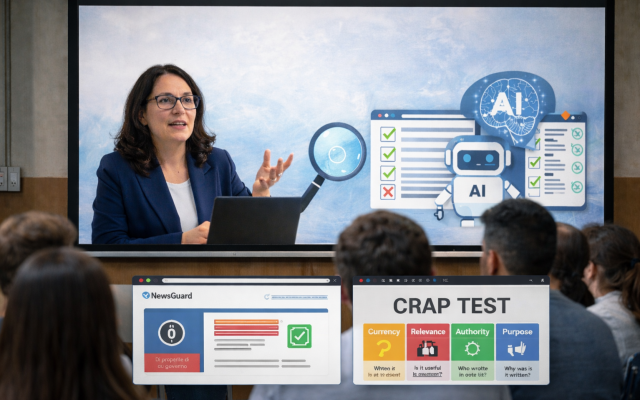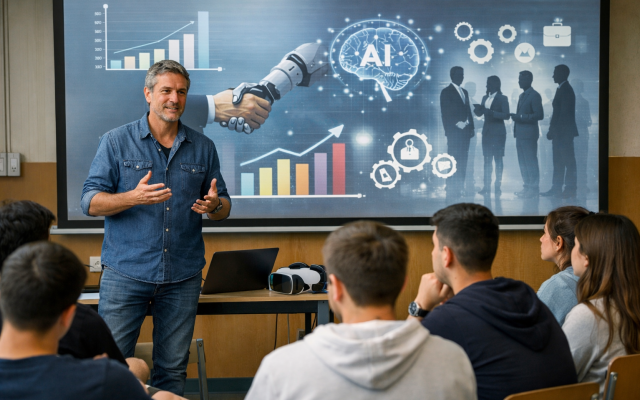Claudia De Crescenzo, an Italian language and literature teacher at the Liceo Scientifico Piero Calamandrei in Naples and integrated digital teaching coach, joined the “Our School” Professors last autumn to develop courses on the understanding of complexity, so that students may learn to orient their behaviour towards meanings, bonds and overall knowledge.
With her work group, Claudia developed a course based on virtual service learning entirely dedicated to the issue of migration and interculturality. The course, which aims to help the students reflect on crucial issues such as global citizenship and integration, is designed to impart a greater awareness of the breadth of contemporary phenomena and a wider horizon to drive the adoption of behaviour aiding aperture, relations and the construction of a common future, free of reductionism and protagonism, one that will educate them to embrace responsibility and positive interdependence. This is the transformative role that schools must seek, even thanks to practice communities such as “Our School.”
As usual, we share a short presentation video and then an interview conducted by Ilaria Gaudiello, who coordinates the works of the open source community of teachers and educators.
INTERVIEW
Claudia, what values guide your mission as a teacher and educator?
I often wonder how I fell head over heels with what I do. I believe the answer lies in my strong propension to help others. Whether they are students or colleagues in training, It makes me happy and gives me satisfaction to help them out in their human and cultural/professional growth. I don’t think of myself as possessing any specific knowledge, but rather as a person with experience who continues to pose questions, research and return complexity to things. Knowledge is constantly in expansion and the most important thing is to understand how much we wish to invest in it to become individuals, citizens, independent and responsible men and women.
In brief, what is the course you are developing with your work group about?
The course is based on a service-learning approach, which, due to the pandemic emergency, has become virtual service learning. The global issue at the heart of the project is that of migration. So, it also is a civic education and political economics course. The didactic activities are subdivided into phases that also include games aiming to induce individual or group reflection. The students are guided through the examination of the reasons behind migrations – studying them through history, geography, mathematics and language – and understanding that we are all “on a journey.”
Besides the objectives that are directly related to the subjects addressed by the course, it also aims to be a transformative course that will truly change behaviour and create concrete local support solutions.
How do you imagine the school of the future?
School is the first environment that individuals learn to live after leaving the family. Thus, it is fundamental for it to be welcoming. Teachers (and coaches and educators) have to welcome learners, provide security through their behaviour and example, and accompany learners throughout their development and education. Schools should be experienced as a community – creating a strong local bond with people – and a place in which everyone can best express themselves without fearing they do not correspond to a given model. There are no model students. A quality school is one that helps its students grow and, overcoming a disciplinary system, suggests and provides the means necessary to develop knowledge based in a present supported by the past and a vision of the future. In the school of the future, students and teachers will work in open groups around projects creatively. Social and citizenship skills will be taught. And digital tools will be pursued not as an end, but rather as a means of supporting learning.



